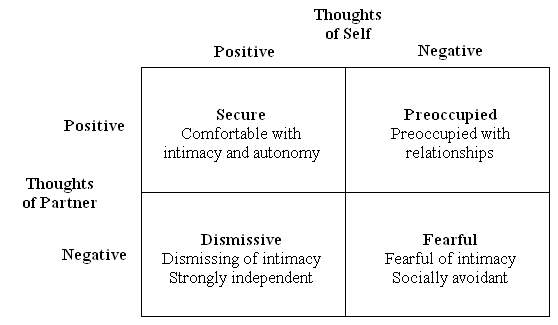The interpersonal theory of abnormality, stemming from Harry Sullivan's work, focuses primarily on how negative relationships that are long-term can greatly impact an individual and cause abnormal behaviour and mental disorders. Some of the concepts within interpersonal theory include stages of psychosocial development, theories of self-concept, and attachment theory.
Erik Erikson's famous theory of psychosocial development describes various stages children go through as they grow, each involving a crisis that needs to be solved. Some of the stages include trust vs. mistrust and intimacy vs. isolation. In the trust stage, if the child is abused or mistreated, they are likely to grow up as distrustful. In this way, negative relationships and events within each stage can lead to abnormal behaviour and mental illness.

Image credit: Kc62301 (Wikimedia Commons)
Attachment theory by John Bowlby explains how early childhood experiences with the caregiver can influence relationships in later life. Quite simply, a child-caregiver relationship that is loving and secure will promote a confident individual who seeks relationships that are also loving and secure, while those raised in an inconsistent or avoidant method may be filled with anxiety and be insecure, jealous, and needy in future relationships.
Interpersonal theories of abnormality also discuss how the self-concept of the child is influenced by criticism and feedback they get as they grow up. If a child grows up and is constantly criticized about an aspect of themselves, they may repress that part (the 'not me') and hold in anger or anxiety in relation to it. Scripts and prototypes are also created involving how the child sees the self and their expectations in relationships. Conflict and negative relationships can again lead to anxiety and abnormal behaviour.
© BrainMass Inc. brainmass.com July 25, 2024, 9:37 am ad1c9bdddf